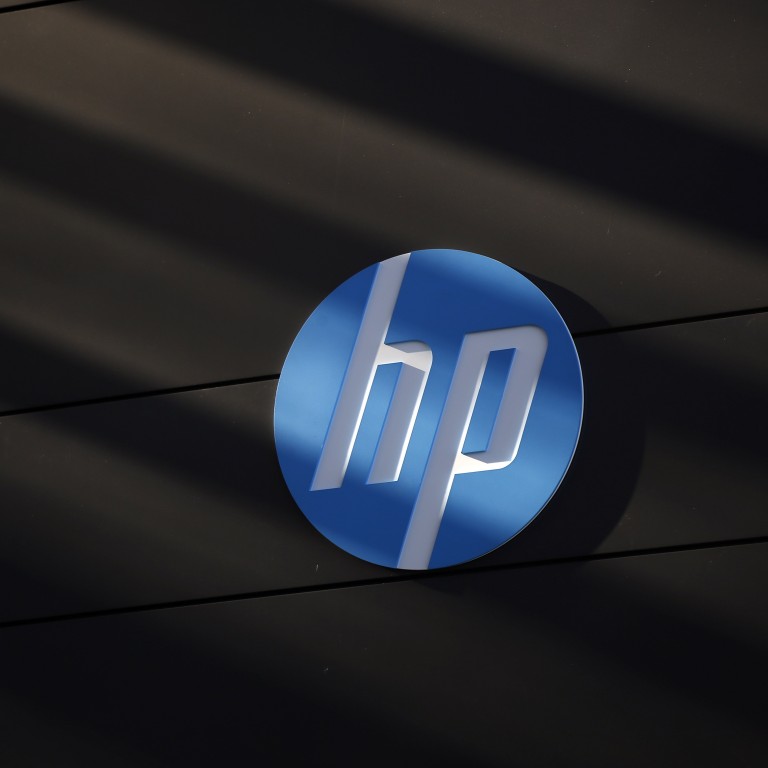
HP-Tsinghua Holdings venture could dominate US$136 billion enterprise hardware market
Hewlett-Packard's new joint venture with state-owned Tsinghua Holdings could become the new 800-pound dragon in mainland China's US$136 billion enterprise technology market, while ushering in a new model of cooperation between local and multinational players.
Hewlett-Packard's new joint venture with state-owned Tsinghua Holdings could become the new 800-pound dragon in mainland China's US$136 billion enterprise technology market, while ushering in a new model of cooperation between local and multinational players.
Analysts at technology research firm IDC predicted the joint venture to emerge as mainland China's second-biggest supplier of enterprise servers, storage systems and networking equipment, behind domestic market leader Huawei Technologies.
"Once this deal [is completed], the new H3C will become a state-owned shareholding company," said Thomas Zhou, the senior research manager for enterprise systems at IDC.
"If the new H3C can effectively manage the transition, it will emerge as one of the most competitive vendors in China's enterprise business market."
In that market segment, H3C would corner a 16.5 per cent share. That would make its slice of the market bigger than those of International Business Machines (IBM), Inspur, Cisco Systems and Lenovo Group.
Zhou forecast the enterprise market for servers, storage systems and networking equipment in mainland China will reach US$16.9 billion this year, up from US$15.4 billion last year.
HP is the third-largest server supplier on the mainland, with a 15 per cent market share. It is also the fourth-biggest supplier of enterprise storage systems.
The old H3C is the leading provider of enterprise wireless local area network equipment in mainland China and the No 3 supplier of routers.
The Unisplendour acquisition is expected to be closed by the end of this year, subject to regulatory approvals and other conditions.
Lenovo president Gianfranco Lanci said on Thursday that the company was unfazed by HP's strategy.
"HP in the next six months is going to split [into two companies, HP Inc and HP Enterprise], which means they will go to the customer with two faces," Lanci said. "Lenovo has an integrated PC and server business to serve customers."
Forrester Research estimated total business and government spending on technology goods and services in mainland China will reach US$136 billion this year, up from US$124 billion last year, to remain the world's third-biggest behind the United States and Japan.
The forecast excluded telecommunications equipment and consumer technology sales.
Founded in 2003, H3C Technologies started as a joint venture between Huawei and United States-based networking equipment maker 3Com. Later, 3Com took control of the old H3C after acquiring Huawei's shares in the company.
In 2010, HP bought 3Com for US$2.7 billion and took over the operations of the old H3C, making it a sub-brand.
Steven Hu, research manager for networking at IDC, said the old H3C was challenged in implementing large networking projects, "especially those driven by the Chinese government", because of its foreign parent company. That was a problem even though the research and development, manufacturing and marketing operations of the old H3C are based in mainland China.
The change in shareholding is expected to benefit the new H3C amid current initiatives in mainland China's public sector to adopt more local technology suppliers.
Beijing's clampdown on the use of foreign information technology in the nation's public sector intensified in May last year when Washington indicted five Chinese military officers for industrial cyber-theft.
Revelations by whistle-blower Edward Snowden in June 2013 about US cyberspying also fanned distrust of foreign information-technology suppliers.
Kitty Fok, the managing director at IDC China, said the venture between HP and Unisplendour suggested the development of a new "model of cooperation between multinational and local vendors will lead to greater competition in the future".
Whether IBM, Cisco and other foreign technology suppliers follows HP's lead in mainland China remains to be seen.



